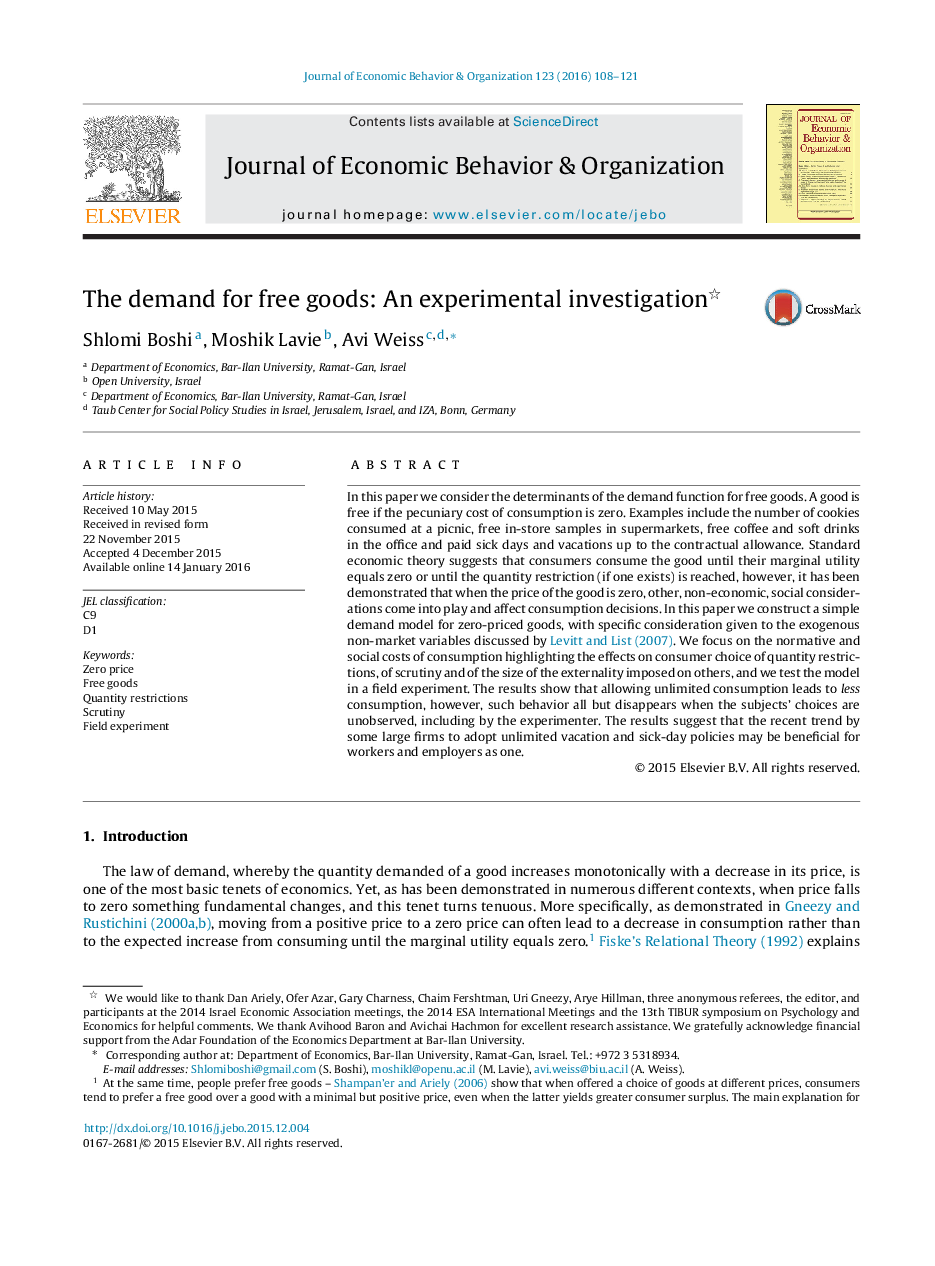| Article ID | Journal | Published Year | Pages | File Type |
|---|---|---|---|---|
| 883458 | Journal of Economic Behavior & Organization | 2016 | 14 Pages |
•We consider effect of quantity restrictions and scrutiny on demand for free goods.•Due to social norms, limitations on consumption lead to an increase in consumption.•We demonstrate this effect in a simple field experiment.•This behavior disappears when the subjects’ choices are unobserved.•Suggests that consumers more concerned with how perceived than with self-image.
In this paper we consider the determinants of the demand function for free goods. A good is free if the pecuniary cost of consumption is zero. Examples include the number of cookies consumed at a picnic, free in-store samples in supermarkets, free coffee and soft drinks in the office and paid sick days and vacations up to the contractual allowance. Standard economic theory suggests that consumers consume the good until their marginal utility equals zero or until the quantity restriction (if one exists) is reached, however, it has been demonstrated that when the price of the good is zero, other, non-economic, social considerations come into play and affect consumption decisions. In this paper we construct a simple demand model for zero-priced goods, with specific consideration given to the exogenous non-market variables discussed by Levitt and List (2007). We focus on the normative and social costs of consumption highlighting the effects on consumer choice of quantity restrictions, of scrutiny and of the size of the externality imposed on others, and we test the model in a field experiment. The results show that allowing unlimited consumption leads to less consumption, however, such behavior all but disappears when the subjects’ choices are unobserved, including by the experimenter. The results suggest that the recent trend by some large firms to adopt unlimited vacation and sick-day policies may be beneficial for workers and employers as one.
